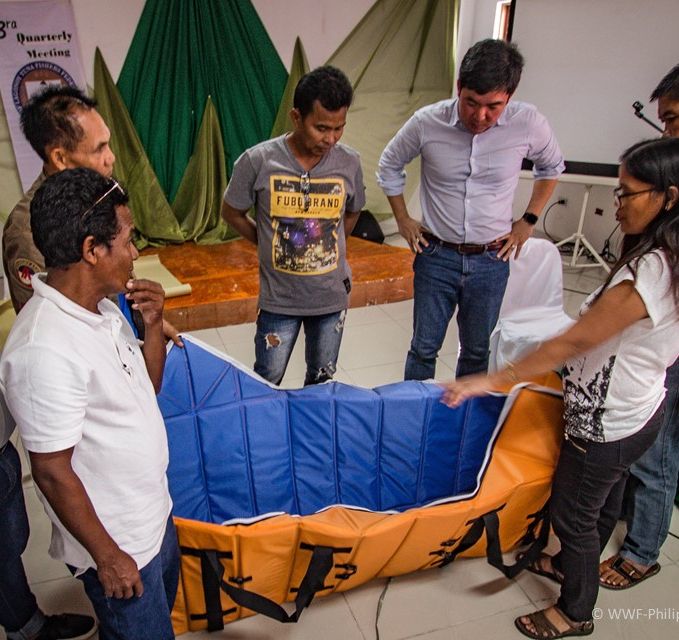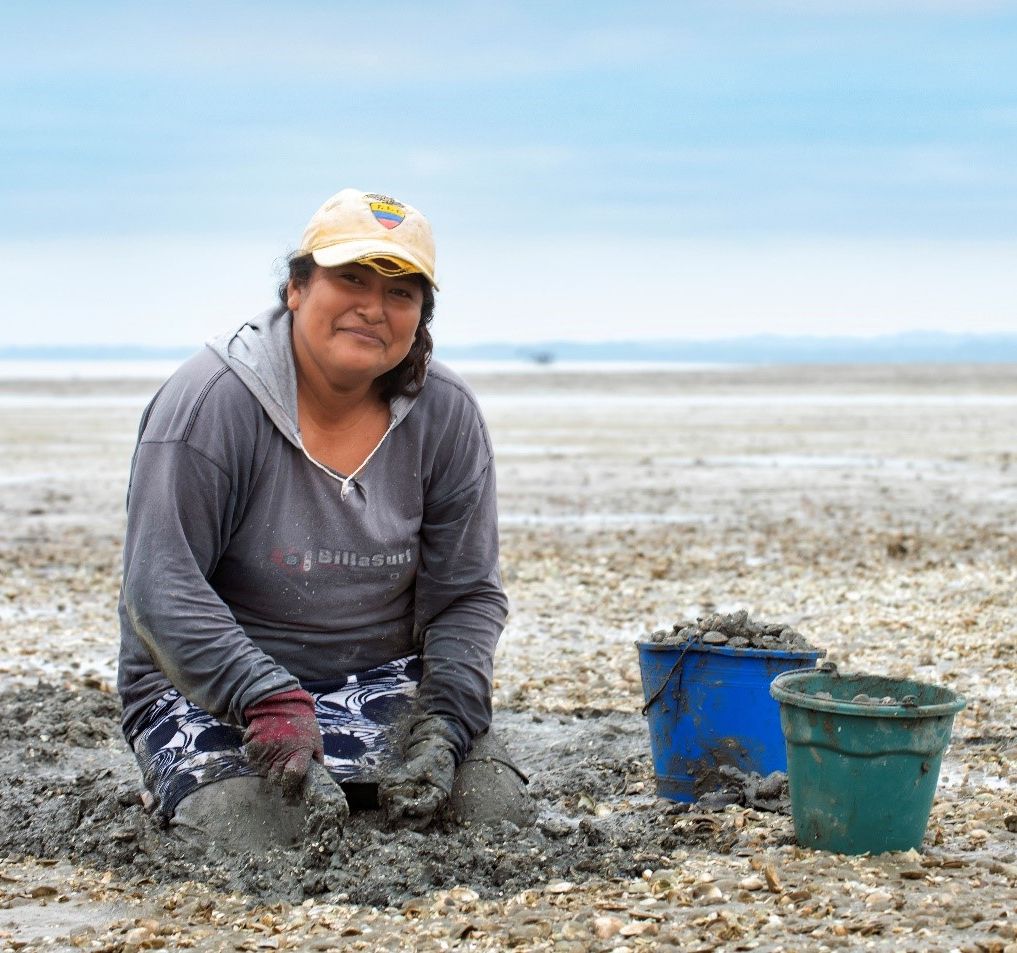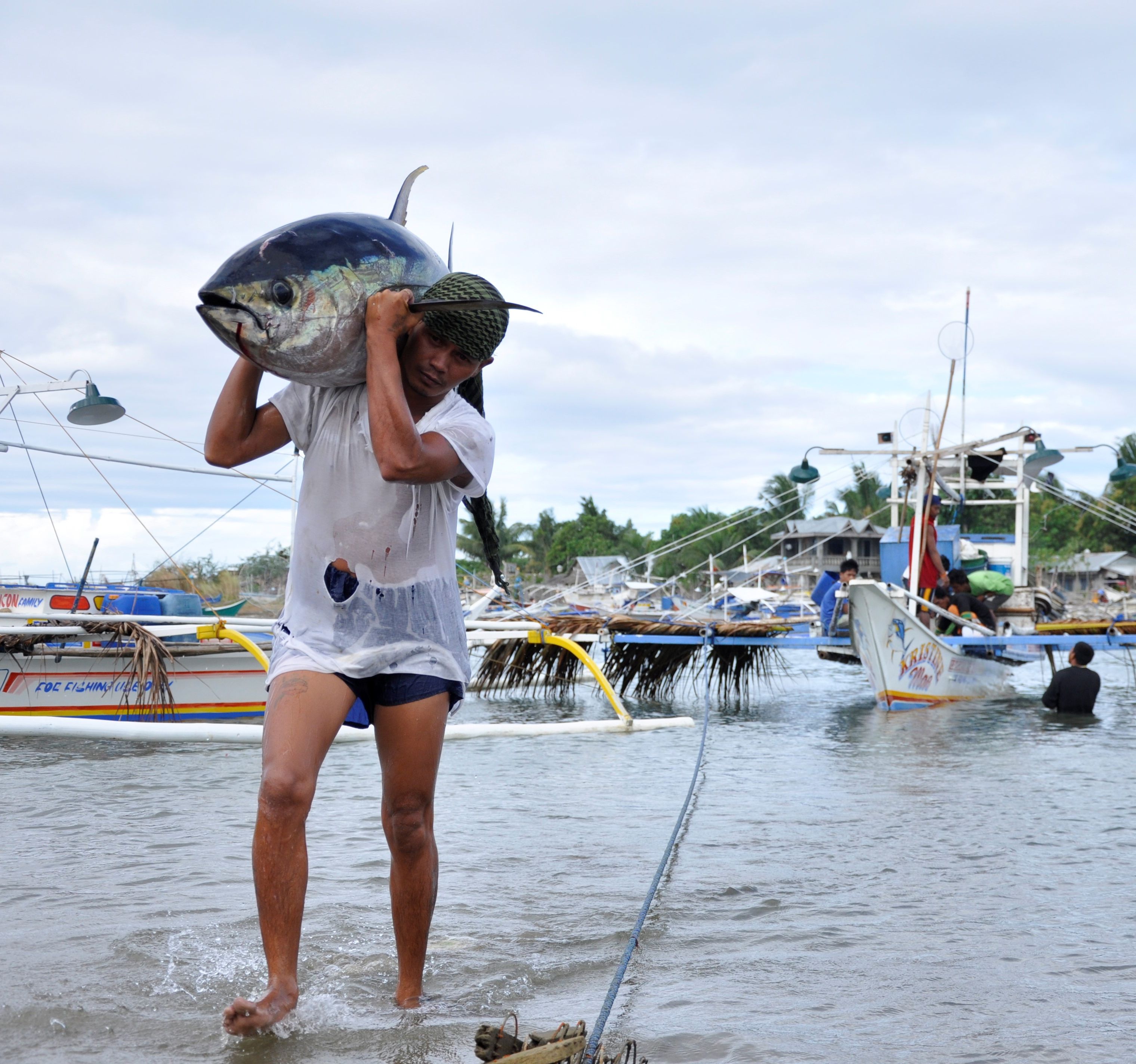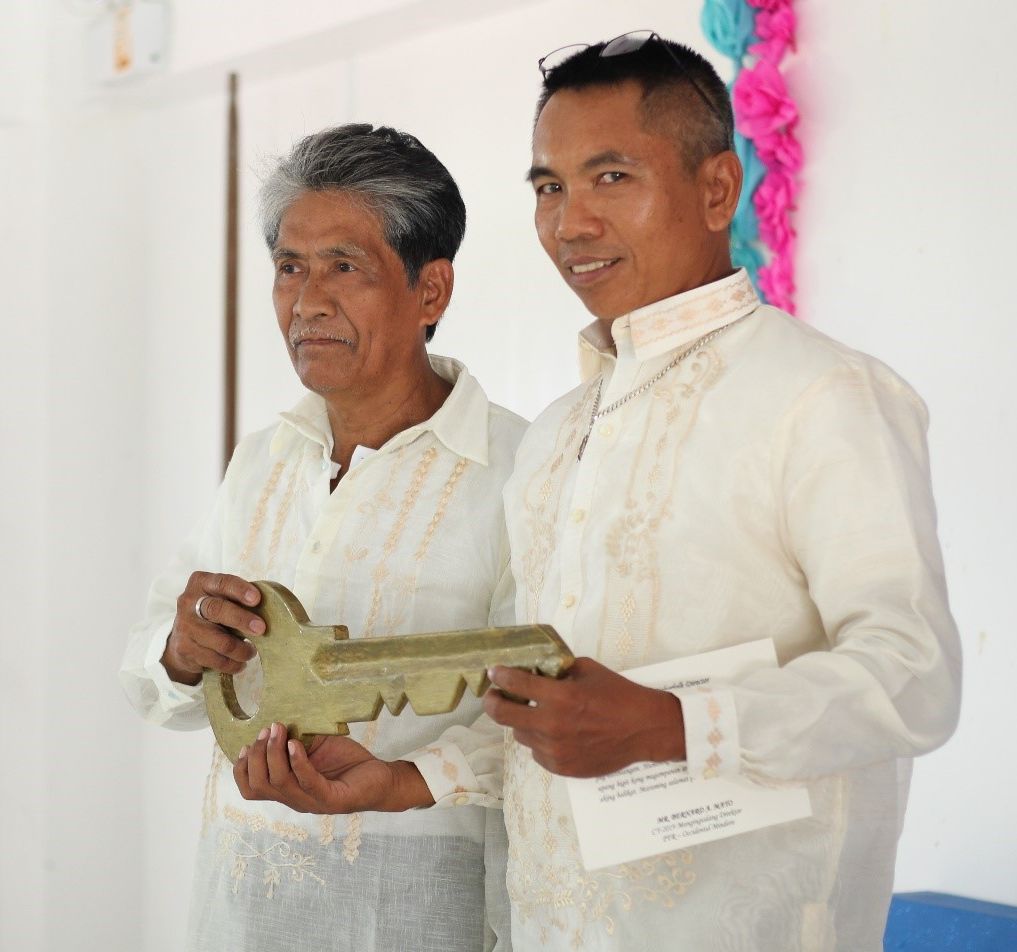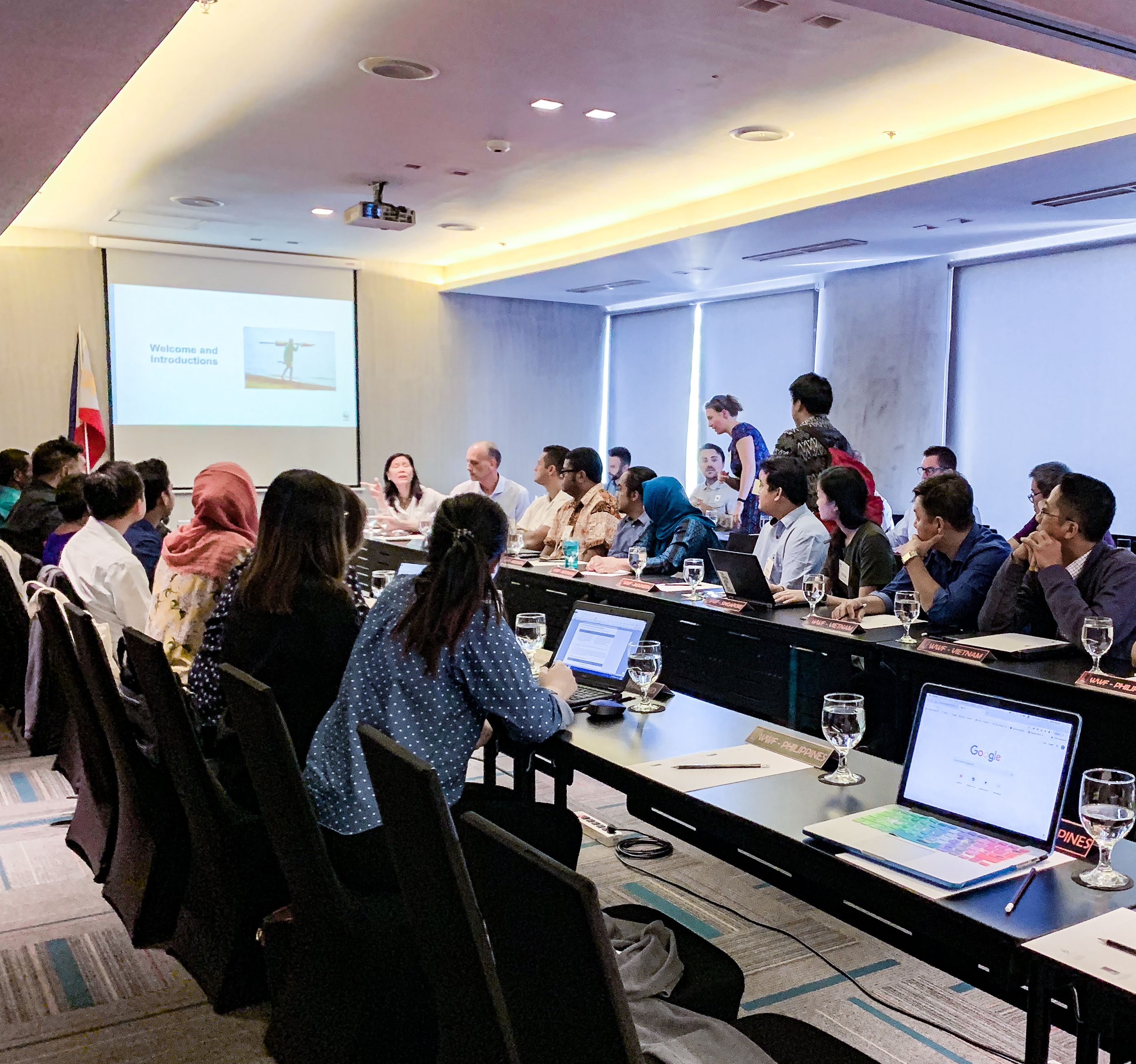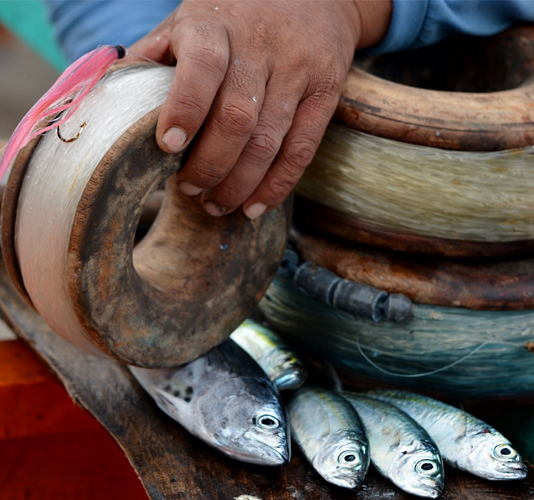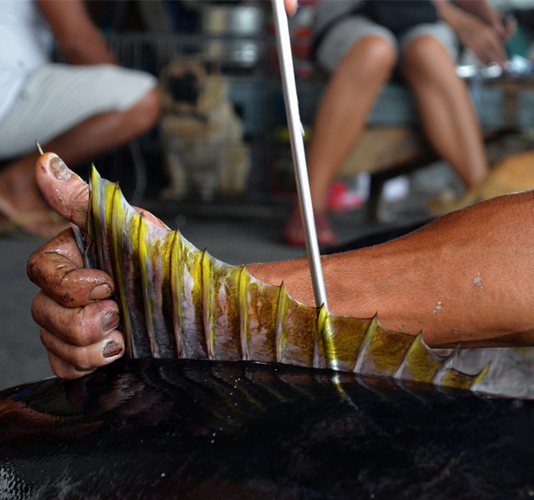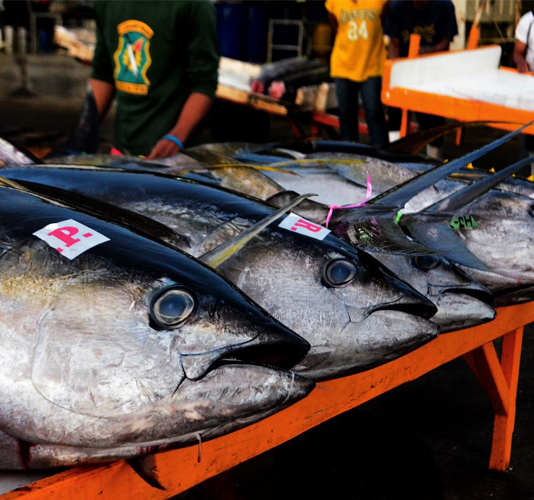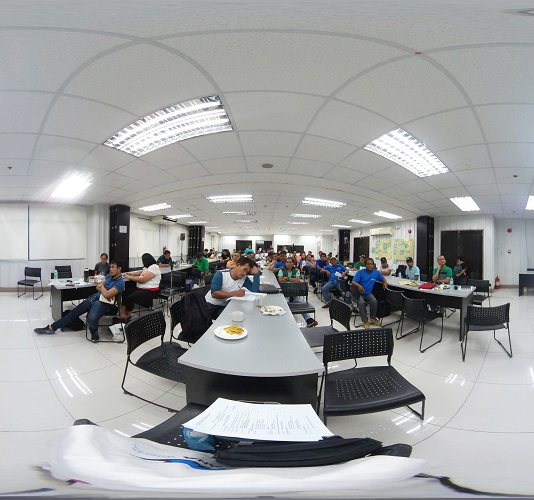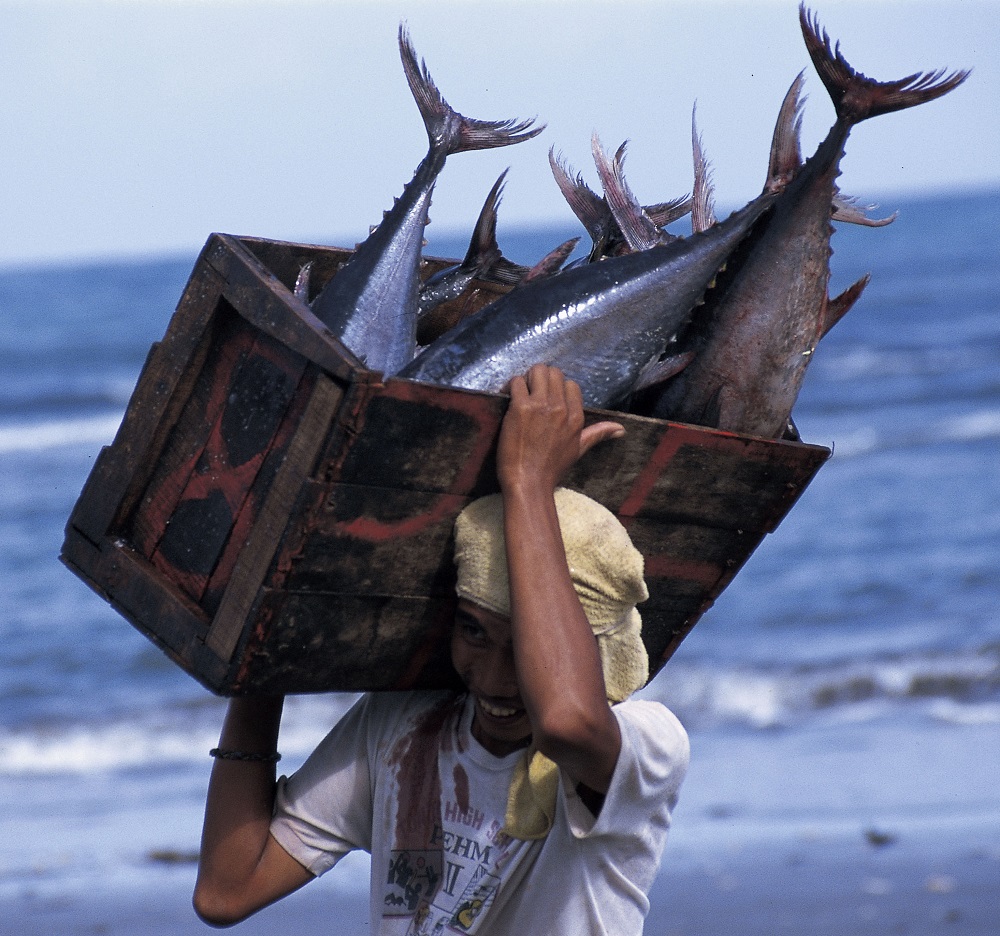If fish were cars, then tuna would be the Ferraris of the sea. Ranging in size from the 1.5-foot bullet tuna to the gigantic 15-foot Atlantic bluefin, these tasty torpedo-shaped fish are among Earth’s most valuable marine commodities. Connoisseurs pay top peso, dollar, euro and yen for juicy slices of sashimi plus luscious, mouth-watering tuna steaks. It is the country’s top export fish commodity valued at PHP19.6 billion pesos in 2014, making up 35% of the country’s total fishery export.
The Philippines is the world’s third largest tuna producer. Tuna fisheries support the livelihood of thousands of small-scale handline fishers and provide income and revenue for those in the processing sectors. Almost half of the country’s seafood exports come from yellowfin, skipjack and frigate tuna. However, the unregulated use of giant nets called purse seines and floating aggregation devices called payao are rapidly depleting stocks. Many of the country’s tuna fisheries are severely overfished, when our waters should be the spawning and nursery grounds for tuna stocks of the Western and
Central Pacific Ocean.
Since 2011, WWF has been advocating for improved governance of Philippine fisheries to safeguard tuna stocks and secure long-term economic benefits over 5,000 fishers in 112 tuna fishing villages around the Lagonoy Gulf and Mindoro Strait. WWF intensified its effort by launching a Fishery Improvement Project (FIP) in two major yellowfin tuna (Thunnus albacares) landing sites with the aim of achieving Marine Stewardship Council (MSC) certification, the best seafood certification scheme available. Presently, over 70% of the tuna fishing vessels in the project regions have registered and obtained licenses.
WWF’s PPTST project has organized tuna fishing associations in all 15 municipalities in the Lagonoy Gulf, plus six LGUs in the Mindoro Strait. WWF has supported tuna handline fishers to form the establishment of Fisheries and Aquatic Resources Management Councils (FARMCs). Because the tuna fishers are now federated, they are now able to access government support through fish landing centers and fishing boats. Local tuna management plans have been prepared which were fed into developing the national tuna management plan. The tuna fishers’ associations are also now part of various local bodies, and have been given a voice in resource management.
The project is funded by Coop, Bell Seafood, Seafresh, New England Seafood Inc., Waitrose, Mark and Spencer, Sainsbury and the German Investment and Development Corporation, PPTST involves European seafood companies plus their local suppliers, BFAR, local government units in the Bicol region and Mindoro, the WWF Coral Triangle Program, WWF-Germany and WWF-Philippines.
“PPTST harnesses market power and consumer demand to promote sustainably-caught tuna and support low-impact fishing methods like artisanal fishing with hand-line reels,” says PPTST overall project manager Joann Binondo. “It is the first and only Fishery Improvement Project (FIP) for artisanal fisheries in the Philippines and aims to secure Marine Stewardship Council (MSC) certification by 2018.”
LATEST STORIES
New Storage Devices Promise High-Value Tuna for Fishermen
On the 10th of July, 2019, at the Tabaco City Municipal Hall, a set of collapsible tuna catch holds, developed by Fortuna
The Women of the Fishing Industry
Fishing is often seen as a man’s job. From sea to line
Mindoro Local Tuna Management Plan Launch
May 2, 2019 saw the launch of the Mindoro Strait Tuna Fisheries Management Plan
New Mindoro Regional Fisherfolk Director
On the 2nd of May, International Tuna Day, the Bureau of Fisheries and Aquatic Resources (BFAR) swore in Bernard A. Mayo as
FIP Fever
On the 26th and 27th of March, World Wide Fund for Nature (WWF) offices from across the Asia Pacific (APAC)
Tiding Over Tuna Fishers
For the Philippines, tuna fishing is a seasonal activity – not just because tuna are highly-migratory fish, but because the country sits right at the center of ‘typhoon central’
Added Value to High Value Fish
No part of a yellowfin tuna (Thunnus albacares) goes to waste.
Freeing Tuna Fishers from Debt
Through its Partnership Program Towards Sustainable Tuna (PPTST), the World Wide Fund for Nature (WWF)
